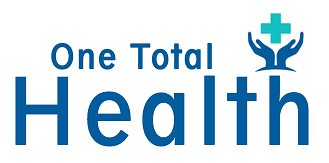A Short Guide to Herbal Supplements
Are you thinking of following herbal remedies or supplements from Designs for Health in Supplement First to maintain your health and relieve symptoms from any conditions you experience? Before you do, it’s best to conduct research and talk with your doctor about it, especially when you’re also taking medications.
That said, here are things you must know about herbal supplements.
What are the Uses of Herbal Supplements?
Herbal supplements are sold by health stores like Supplement First, which are essentially plants for medicinal purposes. People would use such supplements to treat health conditions or relieve any symptoms.
Historically, people used herbal medicines to cure infections, prevent illnesses, relieve fevers, and heal wounds. Furthermore, these natural medicines were known to ease pain, treat constipation, or even act as stimulants or relaxants.
For example, omega-3 fatty acid supplements were known to be helpful and help in lowering triglyceride levels. Furthermore, claims and research show how ginkgo can improve memory and echinacea can improve colds.
However, other research also shows that some supplements don’t help in treating or preventing specific health problems. In fact, some supplements may have serious side effects. For example, Kava is known to help treat anxiety, insomnia, menopause symptoms, among other ailments. However, the supplement can also cause severe liver damage.
The overall effects of herbal supplements will depend on one’s health, current diet, any nutrient deficiencies he suffers from, and how his body absorbs such nutrients.
How to Choose and Use Herbal Remedies
While herbal supplements are generally safe, some may have serious side effects, depending on the individual taking them. We recommend talking to your doctor about taking herbal supplements before buying any.
Besides that, here are tips for choosing and using herbal supplements:
- Look into the claims about the herbal supplement. They should not have false or overexaggerated claims. Also, real-life stories are not scientific evidence or proof something works.
- Purchase supplements only from brands and companies with certification on their labels, which means they agree to test their products’ purity and quality. Supplement labels must always include the name of the supplement, the manufacturer’s contact details, complete ingredient list, serving size, and amount of the active ingredient.
- Avoid taking herbal supplements if you are having surgery, are pregnant, or breastfeeding unless recommended by your doctor.
- Follow the instructions of your herbal supplements and never take too much than recommended.
- Always keep track of the herbal supplements you take.
- Stay updated with any alerts and advisories from the Food and Drug Administration, as they maintain a list of supplements reported to cause side effects or are under regulatory review.
- Those younger than 18 or over 65 years old should not take herbal supplements unless given the go signal from their doctor.
- If you are wondering about a specific supplement, get reliable information by asking your doctor, researching for reputable scientific research findings, and contacting the manufacturer.
Wrapping It Up
Always inform your doctor about any herbal supplements you plan to take and get his recommendations on what you need for your overall health.



